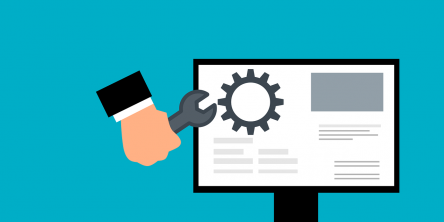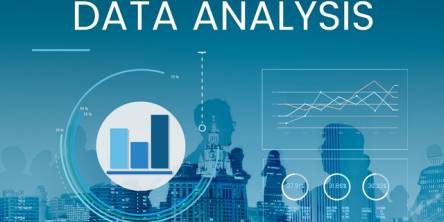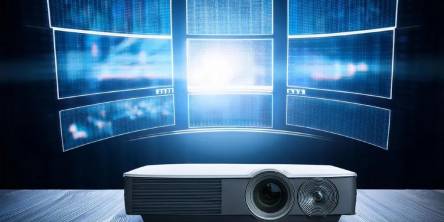What are the Primary Security Challenges for the Future of the Internet of Things?

No doubt, the Internet of Things (IoT) is one of the superior technologies in this era of digital transformation. For those who don’t know, IoT is the core technology platform behind smart devices, self-driving cars, and automated industrial units.
However, with the rapid increase of IoT devices over the years, several security challenges are starting to surface. While IoT devices have made human lives more comfortable, security concerns and data integrity continues to worry developers. So let’s take a glance at some of the top challenges concerning IoT Cyber security.
The practice of using Default Credentials
A plethora of IoT organizations are providing devices and solutions with default credentials. Also, there is a tendency among customers not to change built-in credentials while using the device. Hackers only need the default admin password and username value to break-in to your systems. This is the reason that brute-force attacks are a common occurrence with IoT devices these days. Manufacturers should have enough responsibility to spread awareness about default credentials through user guides.
Outdated Software and Hardware
Have you ever stopped using a smartphone due to a lack of security updates? If you have answered yes, you know well that how unsecured it is to use the device. However, the same cannot be applied to an IoT device or software solution.
Due to its high value, it is impossible to stop using an IoT device when the manufacturer stops releasing security patches. A majority of IoT software and hardware manufacturers don’t care much about security updates. Though these products are secure at the time of buying, they become vulnerable to attacks in the absence of security updates.
Difficulty in Finding the Device when Attacked
Well, no developer and manufacturer can promise total security from various types of cyber-attacks. But the main issue with the IoT platform is a majority of users fail to recognize whether or not their devices are affected. Moreover, when there are a large number of IoT platforms, it is extremely difficult to assess and analyze every device and platform. Thus, there should be a protocol or common ground between manufacturers and developers from where they can identify hacked devices easily.
Data Protection and Underlying Security Issues
In the realm of highly connected devices, the protection of valuable data is quite significant. But with rising concerns of data breaches and security loopholes, protecting user data is quite tricky. Moreover, the instantaneous nature of data transfer has also given rise to various types of concerns amongst users.
One second it is there in your smartphone, the next moment it gets transferred to the cloud. What’s riskier is the fact that all these transfers are conveyed through the web, which often acts as a breeding ground for hackers.
Attack Prevention and Prediction
Cyber attackers are always on the lookout to exploit newer types of techniques in order to identify security breaches. In these types of situations, it is of paramount importance to not only prevent attacks but prevent them too. For connected IoT devoices, this challenge is long-term.
The modern devices interconnected on the cloud make use of threat intelligence for predicting security issues. Also, with the advent of AI, IoT devices come equipped with analytics tools. But all these techniques are difficult to adapt in the entire range of IoT devices. For these technologies to run smoothly, devices should have the power to process data instantly.
Undoubtedly, IoT is a boon in today’s digital landscape. But as it connects to the internet directly, there have always been risks associated with its implementation. Hence, risk management and mitigation become necessary to address underlying security challenges.
Similar Articles
Content has permanently changed. We essentially have the digital revolution to thank for it. You see, how content is created and consumed has been fundamentally transformed.
Explore how enterprise software simplifies complex testing with secure, scalable solutions, streamlining exam creation, administration, and data management for institutions.
Using fiber optic technology, HDMI cables can transmit video and audio signals without compromising on quality over extensive distances.
Explore the OSFP transceiver: a high-speed, future-ready solution for data centers. Learn its advantages in bandwidth, thermal performance, and signal integrity.
The financial technology sector, commonly known as fintech, is experiencing profound changes due to the rise of data science. Integrating extensive data methodologies enhances existing services and unravels new opportunities that were previously unimaginabl
The gas detection industry has been subjected to various issues from the beginning. Whether it's a false alarm, limited sensitivity in detecting gases, or detection of hazardous gases in a remote area, the array of problems goes on and on.
Discover how Tinnox LED Video Walls revolutionize events with vibrant visuals, seamless integration, and unmatched adaptability for unforgettable experiences.
Electrical safety goes beyond mere obedience to regulations; it is a vital defense that shields individuals from fatal risks while at work. These invisible dangers are hunted down by arc flash labels which act as sentinels, warning of imminent disaster that can be avoided in both industrial and commercial settings through proper precautions.
Most of us love sharing our personal photos and creative work on multiple social media platforms for various purposes. However, it’s not safe at all. Once you share anything on social media and make it public, anyone can exploit it for personal gain.









